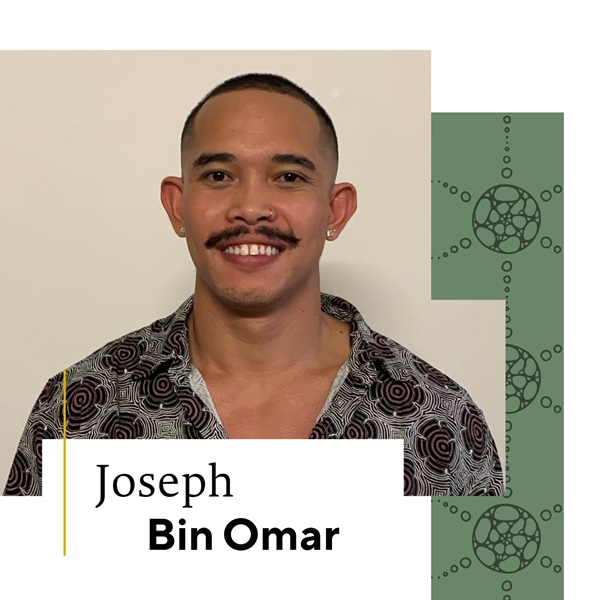School of Population and Global Health
Protecting and improving health
Population (or public) health is the art and science of protecting and improving the health of communities, using an evidence-based approach through research, advocacy and health promotion. It plays an important role in health and wellbeing, as well as improving the social and environmental conditions and behaviours that affect us.
At The University of Western Australia, the School of Population and Global Health is a leading research, teaching and service organisation whose work influences health policies and practices.
With a commitment to achieving excellence in teaching and research training, our courses are flexible and industry relevant, giving students the knowledge and skills to address pressing and emerging health issues.
The School is guided by an Advisory Board that includes high profile and influential members from both government and non-government organisations and provides high level external review and advice on the relevance and direction of major teaching, research, research translation and community engagement programs for the School.
Studying or working in population health is a unique opportunity to decrease inequity and build stronger, healthier communities. julie saunders, Head of School
Our Courses
- Micro-credentials
- The School of Population and Global Health periodically offers a range of microcredentials. See our current offerings here.
- Undergraduate minors in Public Health
-
Studying an Undergraduate minor in Public Health helps to future-proof your health-workforce skillset. You gain the skills needed to adapt to the changing health job market.
The health workforce is a top growing industry, projected at 15% growth by NPILF*. Learn about global health issues, challenges, and the efforts to tackle them from a multidisciplinary perspective.
Professional Engagement & Practice in Health
Develop the transferable skills including organisational behaviour, management practices, workplace communication skills and more, to enhance your future success in a professional setting.
*NPILF Australian Government National Priorities and Industry Linkage Fund for graduate job readiness.
- Undergraduate major in Public Health
- Studying an Undergraduate major in Public Health allows you to examine the patterns of health and disease in society, and apply medical research and evidence-based medicine to populations to improve the health of the community.
- Graduate Certificates
-
Graduate Certificates comprise 4 units and can be credited towards a 1.5 year Master of Public Health or 2 year Master of Public Health.
Graduate Certificate in Population Health Studies
This 6 month course allows you maximum flexibility to select units of interest.
Graduate Certificate in Communicable Diseases Epidemiology
This 6 month course includes coursework units relevant to careers in responding to infectious diseases from a public health perspective.
Graduate Certificate in Environment and Health
This 6 month course includes coursework units relevant to careers in environment and health. - Masters by Coursework Research Projects
-
As a world-class research university, UWA offers research opportunities of the highest calibre. You will work closely with an expert supervisor on a specific research topic to produce a manuscript of significant academic scholarship.
Your initial research training can include completion of a postgraduate coursework Master of Public Health (MPH) with a 24-point dissertation.
This can lead to enrolment in a Master of Philosophy (MPhil) or Doctor of Philosophy (PhD). As a 24-point MPH dissertation research student with us, you will develop, under supervision, a paper for publication in an academic journal - this is the first step in your research career!
- Master of Public Health
-
The 1.5 year Master of Public Health is ideal for domestic students and can include a dissertation or practicum.
The 2 year Master of Public Health is ideal for international students and can include a dissertation and practicum. It provides graduates with a suitable background and generalist qualification for a career in Public Health.

The Master of Public Health (91550) is accredited by the Agency for Public Health Education Accreditation (APHEA).
The Master of Public Health (92550) is accredited by the Agency for Public Health Education Accreditation (APHEA).
- Higher Degrees by Research
- Find out more about research opportunities here.
- Seasonal School
-
The School has reputation for teaching excellence and a strong evidence-based approach to epidemiology, health services research, health program evaluation and health promotion. Our Seasonal School offers s range of out-of-semester units for course credit or professional development at several points throughout the year. These are flexible, convenient education opportunities for a broad audience.
View more about our Seasonal School.
- Scholarly Activity
-
Public health coursework options for the UWA Doctor of Medicine program
The following coursework units are core units within the Master of Public Health (MPH). They cover essential public health knowledge and skills which are integral to a successful career in medicine. Many current MPH students are practicing doctors looking to broaden their knowledge in public health, who view the MPH as a pathway to a more comprehensive understanding of public health and career progression opportunities.
Students choosing the MPH coursework option will complete the mandatory units PUBH4403 Epidemiology 1 and PUBH5749 Foundations of Public Health plus choose either:
All units are available online and should be taken in the following sequence:
-
Year 3, Semester 1 – PUBH5749 Foundations of Public Health
-
Year 3, Semester 2 – PUBH4403 Epidemiology 1
-
Year 4, Semester 1 – PUBH5754 Health Promotion OR PUBH4401 Biostatistics 1
Scholarly Activity Students can credit these units towards a Master of Public Health, if they enrol in the MPH within 5 years of completing these units.
-
- Tsuha Global Fellows Program
-
The Tsuha Global Fellows Program at UWA Perth, seeks to support the next generation of leaders from low- and middle-income countries (as defined by the World Bank).
The Program will provide successful applicants with targeted educational, mentorship and networking opportunities. Read more about the program description and application here
Hear from our students
I love how we have access to so many opportunities for practical experiences, such as through practicum placements and field trips.
I feel confident going into my career that I’ve got the basic skills to continue this learning journey in the real world while making a positive impact on others."
EMILY MUNRO, mASTER OF PUBLIC HEALTH


Name and country/mob?
My name is Joseph Bin Omar and I belong to the Bard and Nimanburr peoples in Broome.
Why did you decide to study public health?
I’ve always had a keen interest in health, whether that was typically as an active kid with sport and nutrition or more so, being curious in wanting to understand why my people were disproportionately represented in health outcomes compared to the wider Australian population. Growing up, unfortunately I would say I encountered many challenges as an Aboriginal boy from Broome. Disadvantaged health status of Aboriginal people being a leading factor. I used this experience and gap in my life as a reason why and motivation to learn more in the areas of public health, and that’s how I’ve wound up where I am. I want to be able to help impact health across the communities, stretching that public health domain and to be able to apply cultural learnings into public health systems.
Why did you choose to study at UWA?
Thanks to the School of Indigenous Studies (SIS) and the outreach programs provided to Indigenous high school kids, I was able to attend a few camps at a young age to gauge exposure into university life, UWA and what was potentially possible. I felt from this experience with SIS, the connections/contacts made with staff and other students throughout my schooling made me comfortable in wanting to study at UWA given the support centre for Indigenous students.
How do you want to make an impact on the world, your community, or next generation?
I want to impact the world through the small things in life, by having genuine and honest conversations and taking the time to ensure another person can be heard. I hope one day I become someone others feel inspired and empowered by, and I want to always be a positive representative of my community back home but also be someone the next generation can connect with and learn from.
Research disciplines
Research initiatives
Our Population and Global Health research sets the foundation for high-impact initiatives, solving the challenges of the modern world.
The Australian Child and Youth Wellbeing Atlas is a comprehensive and freely accessible national data resource, providing valuable geographical insights into child health and wellbeing indicators.
Led by University of Western Australia’s School of Population and Global Health in collaboration with Queensland University of Technology, this project represents a dynamic and collaborative initiative that brings together experts from various fields within child health research, advocacy, policy, community and practice across Australia.
Contact us:
Contact our staff
Congratulations to our award winners
- 2023 Student and Research Prizes
-
Student awards
Konrad Jamrozik Prize for Excellence in the Master of Public Health by Coursework or Coursework and Dissertation – Mackenzie Coulson
Matthew Knuiman Prize in Applied Biostatistics – Claire Hulcup
CDJ Holman Prize for Excellence in Public Health – Charlotte Ryall
School of Population and Global Health Prize for Best Population Health Honours Student – Binu Nandana
School of Population and Global Health Prize for Best Master of Public Health Practicum Student – April Htun and Elizabeth Ross
School of Population and Global Health Prize for Best Master of Public Health Dissertation – Jamie Cransberg and Jessica Heggaton
School of Population and Global Health Prizes for Excellence in Public Health F14053-1 – Niamh Smithies and Tamsyn Lambe
School of Population and Global Health Prizes for Excellence in Public Health F14053-2– Gemma DiffenResearch awards
School of Population and Global Health Prize for HDR Student Excellence – Dr Menna Gower
Bruce Armstrong Student Publication Prize – Dr Craig Cumming
Jan Watt Memorial Prize for Excellence in Public Health Field Research (awarded every second year) – Dr Anna Waterreus - 2024 Student and Research Prizes
-
Student
Konrad Jamrozik Prize for Excellence in the Master of Public Health by Coursework or Coursework and Dissertation – Lauren Brambilla
Matthew Knuiman Prize in Applied Biostatistics – Xiangmeng Tao
CDJ Holman Prize for Excellence in Public Health – Tamsyn Lambe
School of Population and Global Health Prize for Best Master of Public Health Practicum Student – Shaan Hayes and Emily Munro
School of Population and Global Health Prize for Best Master of Public Health Dissertation – Ashleigh Garbellini
School of Population and Global Health Prizes for Excellence in Public Health F14053-1 – Eva Jackson and Shreeya Naroth
School of Population and Global Health Prizes for Excellence in Public Health F14053-2– Shreeya NarothResearch
School of Population and Global Health Prize for HDR Student Excellence – Dr Craig Cumming
Bruce Armstrong Sstudent Publication Prize - Dr Ingrid Stacey
UWA Adjunct and Clinical Title Holders
Adjunct appointments provide a mechanism for The University of Western Australia to recognise suitably qualified and experienced individuals who make a significant contribution to the academic activities of their Schools.
There are two categories of adjunct – those who are actively engaged in clinical practice (Clinical titles) and those who are non-clinical (Adjunct titles). For any queries, please contact [email protected]
News
Centres tackling challenges faced by society, environment and industry
New research centres that bring together leading experts to tackle ocean sustainability, transform prisoner reintegration, study human origins, build security and trust in the quantum era and develop renewable fuels have received Federal funding.
Read moreCall for national approach to breast-density notification to manage cancer risk
Consumer leaders are calling for a national approach to breast-density notification to allow women to make informed decisions about their breast health.
Read moreNear Miss Awards helping to hit health targets
Innovative health projects at The University of Western Australia investigating immune cells, air pollutants, cancer detection and treatment, respiratory viruses, healthcare delivery, neurological disorders and cardiovascular disease have been boosted by grants from the State Government.
Read moreContact
Location
Corner Clifton St and Stirling Hwy (Entrance off Clifton Street), Nedlands WA




